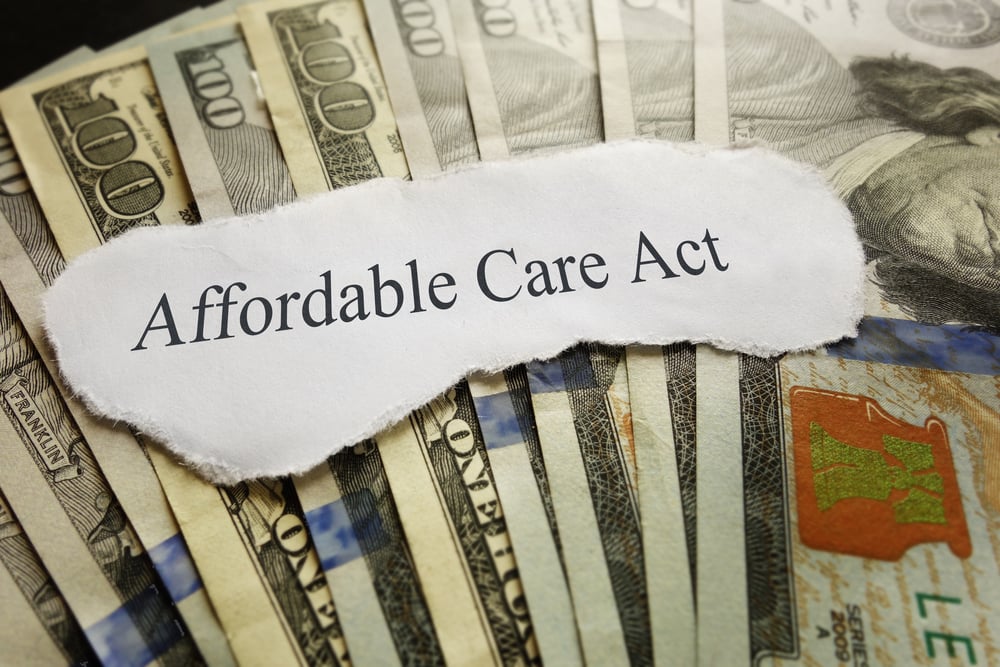
With the Affordable Care Act in full effect, taxpayers understandably have concerns about how the ACA will affect their returns this year. In fact, this new health care law may have significant implications and even substantial penalties if you failed to comply fully with it.Because you presumably want to minimize the negative effects that the ACA will have on your return and any refund that you may be eligible for, it is vital that you understand some of the basic details about any credits or exemptions you could claim. This information could spare you from having to pay a fine or at the very least, take preventative steps to avoid incurring the same penalties next year.
The ACA and Individual Taxpayers
The Affordable Care Act stipulates that everyone purchase health insurance, either through the Marketplace or through one's employer. Individuals who cannot afford to buy health insurance through either means may be eligible for Medicaid if their state of residence chose to expand this program to more people. A number of states, including Texas and Kansas, chose not to expand Medicaid, making it necessary for low-income people to either forgo buying health insurance or purchase health insurance that does not fit well within their budgets.
However, people whose states have not expanded Medicaid and are otherwise considered to be low-income earners may be eligible for tax credits that can help them pay for their health insurance premiums. To be eligible for a tax credit, people must:
- Purchase health care coverage through the Marketplace
- Not be able to afford to buy coverage through an employer
- Have incomes below established guidelines, determined by their family size and wages or salaries
- Not file Married Filing Separately, except in cases of spousal abandonment, domestic violence, or other qualifying circumstances
- Not be claimed as someone else's dependent
If people meet any of these criteria, they may be able to claim a tax credit to help meet the cost of their monthly premiums.
The ACA and Employers
Like individual taxpayers, small business owners also are required to provide coverage for their employees. The costs of providing this coverage may be offset with tax credits if they employ fewer than 50 people. They may be eligible to purchase coverage through SHOP, or the Small Business Health Options exchange. They also must withhold 0.9 percent of their employees' incomes that exceed $200,000.
Businesses that employ fewer than 25 people and cover at least 50 percent of those individuals' health care costs likewise may be able to claim a tax credit. However, these owners cannot pay their employees more than $50,000 a year on average in order to remain eligible for this assistance.
The Affordable Care Act and Families
People who have children and generally expect a large refund each year may expect changes to their returns if they failed to purchase qualifying health insurance. In fact, if their incomes are above the established levels that are used to offset any penalty for non-compliance, these individuals may have to pay a penalty of $95 or one percent of their income, whichever amount is greater.
Alternatively, if they claimed a tax credit to help them pay for premiums, yet the income that they claim this year is greater than the amount used to determine their tax credit, they likewise may incur a penalty. These families will have to pay back the tax credit overage to the IRS. The fine for such overages is capped at $10,000, however.
Claiming an ObamaCare Tax Credit
During open enrollment, you can find out if you are eligible for a tax credit by visiting the Marketplace's website. On the website, you will find Form 8965, which helps you determine your expected income this next year and whether or not you can afford to buy coverage through your job.
It is vital that you take into account any and all lifestyle or income changes that could occur before using this form. Some circumstances that could affect your next year's income include:
- Pay raises or pay cuts
- Getting married
- Getting divorced
- Job events like receiving a holiday bonus or getting a promotion
- Having a baby
- Adopting a child
- Gaining or losing your government-sponsored health coverage
If you expect any of these events to occur, you would do well to include them in your calculations. You can always contact the ACA directly to report income or family size changes as needed. You can also use less of your tax credit for your premiums to help you avoid the most substantial penalties.
The new ACA law has left many taxpayers confused and hesitant to file their taxes. You can file your taxes more confidently by knowing what tax credits and exemptions are available to you if you meet certain criteria.




